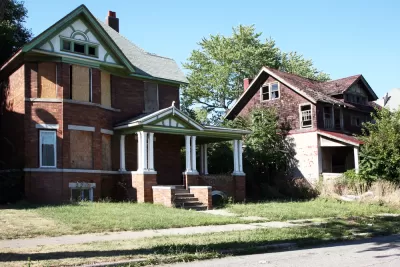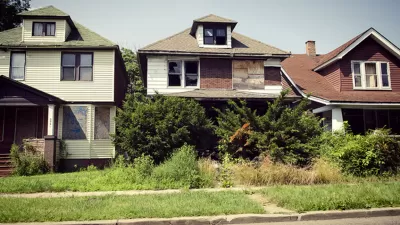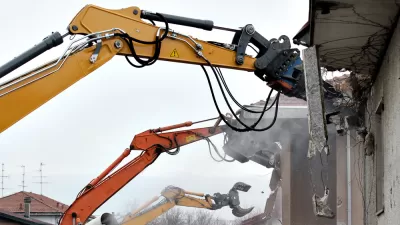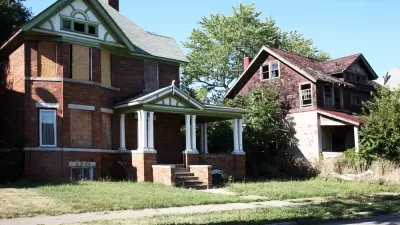A recent influx of money to Detroit for demolitions of abandoned properties brings the city's total to $107 million. That money has established Detroit as the country's proving ground for the idea that demolitions stabilize struggling neighborhoods.

"The City of Detroit stands to receive an additional $21.25 million in demolition money from the federal government under a proposal authorized by the Obama administration and approved Wednesday by a state housing board," report Todd Spangler and Paul Eggan. "The money will be enough to take down nearly 1,300 blighted structures if recent averages hold."
The funding comes by way of the U.S. Treasury, which essentially allowed the Michigan State Housing Development Authority "to move another $32.7 million of a $498-million award made in 2010 under the Hardest Hit Fund." According to Spangler and Eggan, the recent influx of money (split between Detroit and Flint) "marked the third time Treasury has allowed the state to move money from other home-ownership protection efforts under the program into demolition, which state and city officials have argued can do more in some municipalities to help stabilize struggling neighborhoods."
The money gives the Detroit Land Bank funding to operate through April. Flint had already ceased demolitions due to lack of funds. The article also notes, importantly, that costs have gone up on average for demolitions in Detroit—to $16,400 per demolition from about $10,000 in 2014. Matt Helms and Joe Guillen report on the increased demolition costs, and the pushback they've provoked, in a separate article.
FULL STORY: Detroit to get $21 million more for blight demolition

Alabama: Trump Terminates Settlements for Black Communities Harmed By Raw Sewage
Trump deemed the landmark civil rights agreement “illegal DEI and environmental justice policy.”

Planetizen Federal Action Tracker
A weekly monitor of how Trump’s orders and actions are impacting planners and planning in America.

Why Should We Subsidize Public Transportation?
Many public transit agencies face financial stress due to rising costs, declining fare revenue, and declining subsidies. Transit advocates must provide a strong business case for increasing public transit funding.

Understanding Road Diets
An explainer from Momentum highlights the advantages of reducing vehicle lanes in favor of more bike, transit, and pedestrian infrastructure.

New California Law Regulates Warehouse Pollution
A new law tightens building and emissions regulations for large distribution warehouses to mitigate air pollution and traffic in surrounding communities.

Phoenix Announces Opening Date for Light Rail Extension
The South Central extension will connect South Phoenix to downtown and other major hubs starting on June 7.
Urban Design for Planners 1: Software Tools
This six-course series explores essential urban design concepts using open source software and equips planners with the tools they need to participate fully in the urban design process.
Planning for Universal Design
Learn the tools for implementing Universal Design in planning regulations.
Caltrans
Smith Gee Studio
Institute for Housing and Urban Development Studies (IHS)
City of Grandview
Harvard GSD Executive Education
Toledo-Lucas County Plan Commissions
Salt Lake City
NYU Wagner Graduate School of Public Service





























